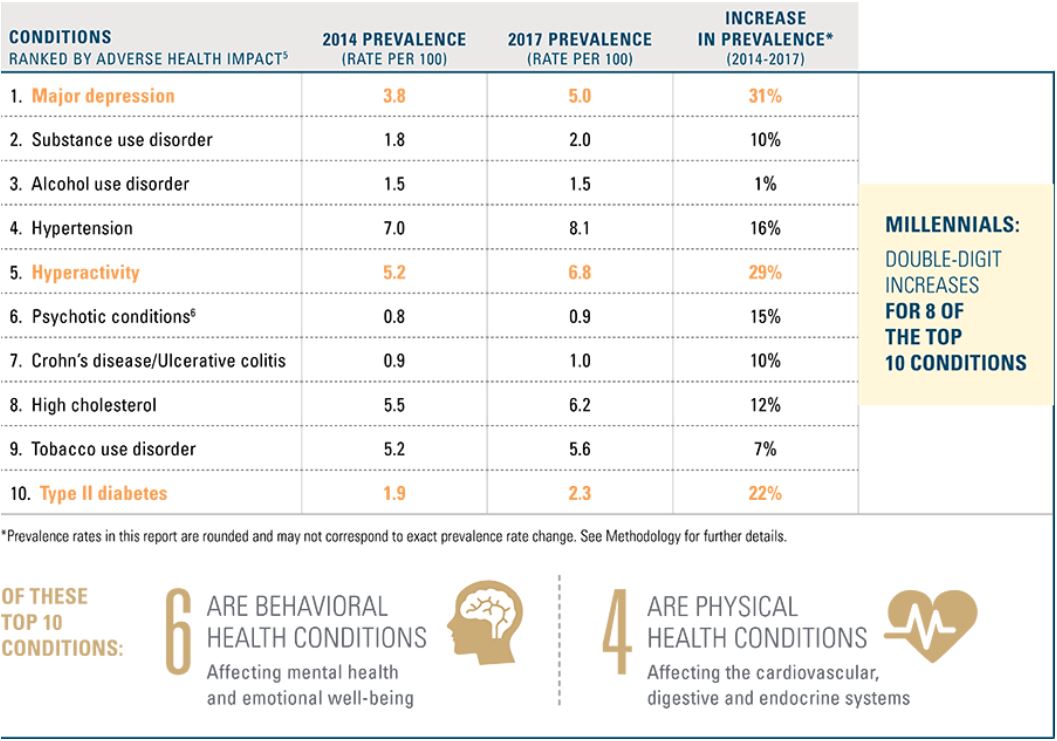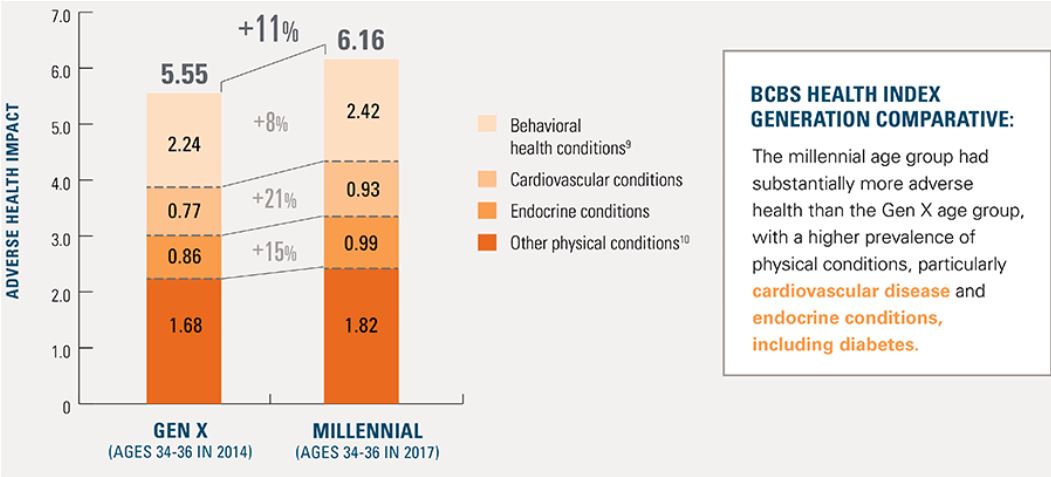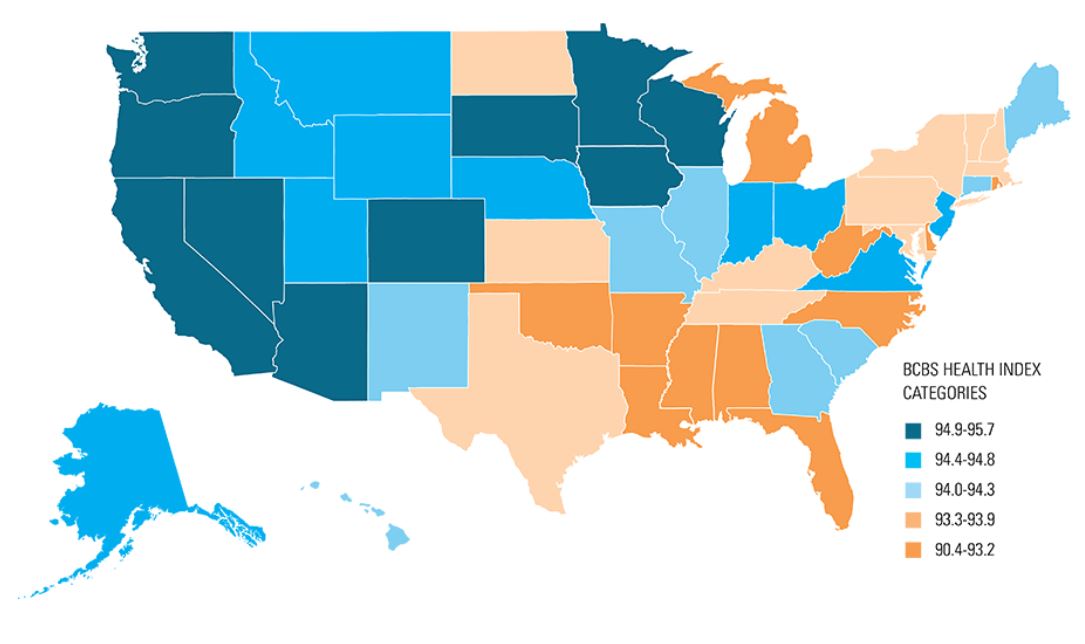The Health Outlook Is Gloom for Millennials
According to the Pew Research Center, a millennial is anyone who was born from 1981 to 1996 [1]. It is forecasted, the Millennial generation will overtake the Baby Boom generation at some point in 2019 as their population numbers hit 73 million and 72 million, respectively [1]. While millennials may be the frontrunners in political and social changes and movement, their mental and physical outlook is gloom. According to a Blue Cross Blue Shield (BCBS) Health Index, after the age of 27, all major measures of health begin to sharply decline, which was not seen in the preceding generation, Generation X [2]. This article will examine points in the BCBS Health Index with several screenshots from the report to aid in visualizing the change.
The Rise in Health Conditions
The BCBS Index examines the prevalence of various health conditions within the millennial generation. From 2014-2017, there were double-digit increases with eight of the top ten health conditions, and millennials were significantly impacted by behavioral health conditions. See Figure 1.
Figure 1, Screenshot from Reference 2
More Health Issues When Compared to Generation X
Another examination the Blue Cross Blue Shield (BCBS) Health Index performed was comparing the health of Millennials between the ages of 34-36 to the health of Gen Xers when they were 34-36. This investigation also included various aspects of mental health. See Figure 2.
Figure 2, Screenshot from Reference 1
Examining the study holistically, Millennials has an 11% increase in the top ten health conditions when compared to Gen Xers, and this was driven by the shocking increase in hyperactivity (37%), type 2 diabetes (19%), and major depression (18%).
When comparing the overall increase of major conditional categories of ailments, the largest increase was cardiovascular conditions. See Figure 3.
Figure 3, Screenshot from Reference 3
Interestingly, there was a sharp distribution in health ailments according to geographic location. Individuals living in the northeast and the southeast United States have dramatically lower BCBS Health Index ratings than those living in the west and north-mid-west. See Figure 4.
Figure 4, Screenshot from Reference 2
What Is Causing This Change?
There are many speculations as to what is driving this change for the worse. I would point to the detrimental change in people’s diets, more glyphosate in food and in the environment, and overall, people’s weakening immune systems. I plan on writing another article examining the driving forces behind these changes.
What Can Millennials Do?
Going off of the assumption that Millennials’ diets are not going to change, even though they should, I would recommend even the most basic of supplement programs, Healthmasters’ Basic Healthy Lifestyle Kit. This kit is extremely convenient to use and provides the basic and supplements necessary to maintain one’s health.
If you have any questions about Healthmasters’ Basic Healthy Lifestyle Kit, please feel free to call our office at 800.726.1834.
Reference:
[1] https://www.pewresearch.org/fact-tank/2018/03/01/millennials-overtake-baby-boomers/
[2] https://www.bcbs.com/the-health-of-america/health-index/millennial-health





.JPG)


